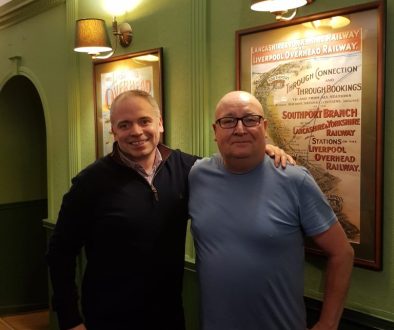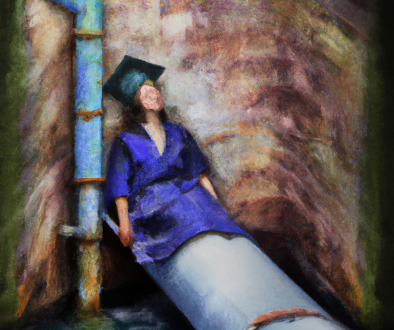Dancing around the edges of academia by Jo Fletcher-Saxon
“Human knowledge is never contained in one person. It grows from the relationships we create between each other and the world, and still it is never complete.”
(Paul Kalanithi, When Breath Becomes Air)*.
I am in a state of excited anticipation about the Working Class Academics Conference 14th and 15th July.
I was the first in my family to go to university. Not just my immediate family but amongst cousins. It wasn’t in the plan, no one talked about university at home, there was no sense of possibility. Whilst acknowledging this, I direct no blame at my parents. The education landscape beyond compulsory schooling was an unknown to them.
I went to college and then headed off into the world of work. It was only in my 20s that I returned to education and my local college introduced me to an Access course. Up to this point, class hadn’t been in my consciousness. Difference was. Class wasn’t. I soon started to ‘feel’ it. Initially in uncomfortable ways, in later years I have reshaped that narrative (and continue to do so).
I should say here that mixing discussion of educational background and class is very much about my perspective and in no way suggests a correlation between working class identity and low educational aspiration or achievement.
‘Feelings of working classness’
As I moved through the Access course and into university, I was painfully aware of having no anchors or touch points as other students had about the arts, politics, history, economics, environment (did we even talk about the environment back then?). I had no mental models of ‘how to be a university student’ both in academia – in the seminars and lectures and outside in student social spaces. This extended to not knowing what to wear and how to talk. Peers seemed to have an unquantifiable confidence in academic spaces. Outside they had rich experiences from their families to draw upon and strong binding family relationships to sustain them. (I am not suggesting a lack of these things correlates to working class identity – my perspective remember!).
It has been a few decades of ‘realisation moments’ that have enabled me to develop my own sense of entitlement to be in academic spaces, as student or teacher. I’ve long carried a chip on my shoulder but now me and my chip – we see each other, we talk to each other, we forgive each other.
‘Realisation moments’
It is only in recent years that I have become aware that not everyone stocks up on treats for Christmas in their kitchen cupboards! Or that guilt when spending money might have root causes I hadn’t previously thought through. I learnt this from Dr @JennyAThatcher. It just shows that those moments of realisation are always around.
But this is not a woe is me tale. My family were entrepreneurs. They worked for others but also ran their own businesses. The most significant in my childhood was a large Lancashire seaside hotel that thrived in the days of factory holidays known as Wakes Weeks. This meant I met a diverse range of people who flowed in and out of my childhood, leaving their traces of possible other identities.
This mix of entrepreneurial endeavour and my own educational journey has undoubtedly shaped me. I have the privileged role now of creating courses and opportunities for adult returners but it’s a job and role I grew and created for myself, carving out my place where it previously didn’t exist. I now skip and dance around the edges of academia as a college HE lecturer who also advocates for FE staff to have a place at the table on FE research. I seem to gravitate towards places for creative disruption** … and this event will be one of those. The conference will be a collegiate space where academics / participants can convene to inspire, enjoy, create, think, do and lift each other up, to be unapologetically me, unapologetically us. See you there.
*Thank you Dr Christine Challen for sharing Paul Kalanithi’s writing with me.
**Thank you Professor John Diamond for the term creative disruption!


John Diamond
03/06/2020 @ 4:38 pm
Really enjoyed reading this Jo and made me think a lot about the ways in which policy and practice is ‘professionalised ‘ so that it rules out emotions and feelings. And how important it is to consciously and deliberately hold onto the personal in our understanding of how individuals experience the systems society / capital has created to maintain difference and power. And equally how important it is through alliances that we seek out those spaces or find the room to manoeuvre such that we can be creatively disruptive ! Good luck and take care.
Jen Greenslade
07/06/2020 @ 10:28 pm
Wow, Jo, powerful writing and stimulating reading…..makes me wish I was still in FE so I could go to the conference. Love the term creative disruption, sounds like a description of my sewing room!